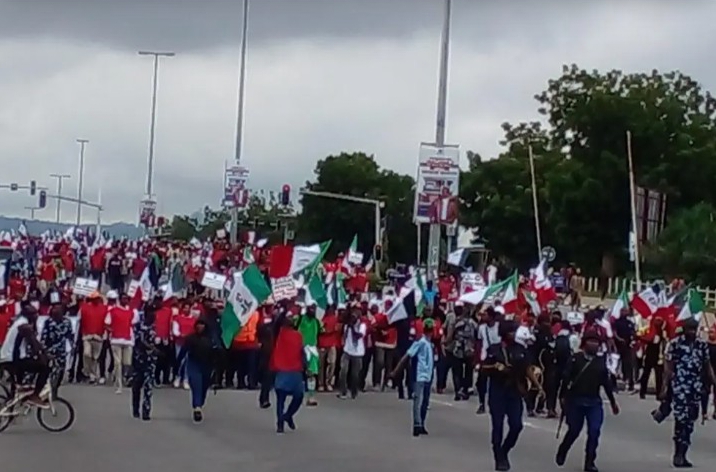The Nigeria Labour Congress (NLC) has recently raised alarm over what it describes as a deliberate conspiracy among key players in the oil sector, including the Dangote Group and other oil marketers, to overcharge Nigerians for Premium Motor Spirit (PMS), commonly known as petrol.
This was made known in a communiqué released on Sunday following the NLC’s National Executive Council (NEC) meeting held on Friday.
The Union expressed deep concern over the current pricing of petrol, which ranges between N1,060 and N1,200 per litre—a figure that the NLC argues is far above its true market value.
According to the NLC, the inflated petrol prices indicate a worrying pattern of cost-padding and unjustified profit margins that harm Nigerian consumers.
The Union asserted that these high prices reflect a market strategy where certain economic “fat cats” in the oil industry, particularly marketers and dominant companies like the Dangote Group, may be manipulating prices to extract greater profits at the expense of the ordinary Nigerian.
This practice, the Union noted, not only burdens Nigerians with unsustainable fuel costs but also points to deeper structural inefficiencies and ethical concerns within Nigeria’s oil and gas sector.
The Union highlighted that the inflated pricing could be tied to ongoing issues between marketers and the Dangote Group, which operates the newly completed Dangote Refinery.
This facility was touted as a potential solution to Nigeria’s dependency on imported refined products and was expected to reduce costs by sourcing fuel locally.
However, the NEC suggested that this monopolistic control over the refinery and, consequently, the fuel supply chain may have led to price manipulation, which in turn prevents Nigerians from benefiting from competitive pricing.
Beyond merely pointing fingers, the NLC has called for immediate government intervention, specifically urging the activation of the Port Harcourt refinery as well as other government-owned refineries.
By bringing these facilities online, the NLC believes that Nigeria can reduce its reliance on privately controlled facilities and curb the monopolistic tendencies that appear to be driving prices higher.
The Union argued that this move is essential not only to create a more competitive market but also to ensure that the country’s resources are used in a manner that benefits all Nigerians rather than enriching a few powerful interests.
The NEC’s communiqué underscored a growing frustration with what it described as “shenanigans” surrounding fuel pricing, which it claims are systematically designed to keep prices elevated.
The Union argued that until there is a diversification of supply sources, including publicly managed refineries, Nigerians may continue to face inflated costs for fuel.
The current situation, they said, reflects an imbalance of power in the oil sector where the control of fuel pricing rests disproportionately with private companies that may not prioritize the interests of Nigerian consumers.
In conclusion, the NLC’s message highlights an urgent call for government action to counteract potential price-gouging practices and to restore a fair pricing structure that reflects the true market value of petrol.
By investing in public refineries and ensuring their functionality, the government can mitigate monopolistic practices and protect Nigerians from further exploitation.
The Union’s communiqué has thus set the stage for heightened scrutiny of the oil sector’s pricing mechanisms, with the hope that government intervention will lead to lasting reforms for the benefit of Nigerian citizens.

